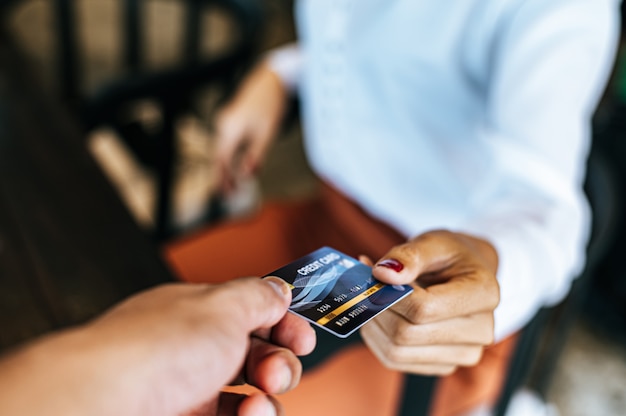
Credit card debt can be a huge burden and is often what keeps many people stuck in financial trouble. High interest rates and endless minimum payments can make it feel like you’ll never get out of debt. But with a smart plan and active effort, you can make significant progress in paying off your credit card debt within a year.
Even if there are only a few months left in the year, you can still make a big dent in your debt, or even get rid of it completely, if you create and follow a good strategy. Imagine starting the new year without the stress of credit card bills and other loans. Here’s how you can reach that goal. This post will share some tips to help you permanently get rid of credit card debt.
**1. Start with a Budget:**
Good financial planning always starts with a budget. You need to know where your money is going to find areas where you can cut back and put more towards paying off your credit card debt. Write down all your monthly income and fixed expenses like rent, utilities, groceries, and other regular costs. Then figure out how much extra money you have to pay towards your credit card debt.
Once you’ve listed your expenses, divide them into essential and non-essential categories. Essentials are things like rent, utilities, and food. Non-essentials include things like subscriptions, hobbies, and eating out.
When you have a clear picture of all your expenses and income, you can see if there’s any extra money to put towards your debt. Even if things are tight now, know what costs you can cut back on in the coming months.
**2. Focus on High-Interest Balances First:**
Deciding which debts to pay off first is key to quickly reducing credit card debt, especially if you have multiple cards. Since interest keeps adding up, start with the card that has the highest interest rate, and then move on to the next. While focusing on the highest interest card, make sure you still pay at least the minimum on the others.
For example, if you have three credit cards with balances of:
1. $2,000
2. $600
3. $300
Card 1 probably has the highest interest charges. Paying off this card first can save you money on interest, while you keep up with minimum payments on the other cards.
Alternatively, you can start with the card that has the lowest balance. In this case, you might start with Card 3. Paying off this card quickly can give you the motivation to tackle the rest of your debt.
**3. Negotiate for Lower Interest Rates:**
If you pay on time and have a decent credit score, your credit card company might lower your interest rate if you ask. With a lower rate, you can pay off your debt faster and save money in the long run.
You can also look into balance transfer cards. These let you move your existing debt to a new card with 0% interest for a set period, giving you an interest-free window to pay off your debt. Another option is a low-interest personal loan to combine your debts into a single amount, helping you avoid high credit card interest rates.
**4. Reduce Your Spending:**
To free up more money for paying off debt, you need to cut back on your expenses. Look for ways to reduce your budget – cook at home, cancel subscriptions, limit how much you spend on fun activities. Try using cash for a few months to avoid overspending. Identify categories where you usually spend too much, like groceries or household items.
Keep a close watch on your spending and make adjustments as needed. Checking your budget regularly can help. Remember, every dollar saved helps you pay off your debt faster.
**5. Consider Debt Consolidation:**
If you have several credit cards with high balances and interest rates, combining your debts into one loan can simplify your payments and lower your total interest. If you’re finding it hard to make the minimum payments on multiple cards, this might be a good option.
In summary, paying off credit card debt takes time, dedication, and persistence. But with a solid plan, it’s possible. Start now, and you can make real progress by the end of the year. With a good budget, prioritizing your debts, negotiating lower interest rates, cutting expenses, and possibly consolidating your debt, you can break free from credit card debt and move towards a more stable, debt-free future.
Celebrate small victories along the way, and don’t hesitate to ask a financial advisor for help if needed. Good luck!